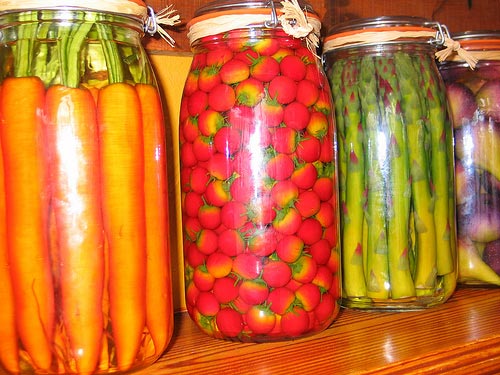Food safety legend takes on Pulitzer-prize winning N.Y. Times reporter: who you gonna call?
 About three-quarters of the way into a snoozefest of an article in QSR Magazine about the usual Washington BS about food safety reform, things get lively, because the reporter talked to someone who actually works in microbial food safety.
About three-quarters of the way into a snoozefest of an article in QSR Magazine about the usual Washington BS about food safety reform, things get lively, because the reporter talked to someone who actually works in microbial food safety.
David Theno gets much of the credit for saving Jack in the Box from its E. coli disaster in 1993, in which four children died and hundreds of people got sick from eating undercooked meat contaminated with the bacteria. He went on to serve at the San Diego–based company for 15 years, during which he was known as an innovator in the realm of foodservice safety procedures.
Now working as a consultant to the government and the foodservice industry, Theno has concerns about the Obama administration’s ambitions on the food-safety front.
“We’re in a government mode today where the reigning authority seems to think that government is going to fix everything. I’m not sure the government should be overseeing much of anything.”
As for the Modernization Act, Theno characterizes it as a power grab, a way for Washington to be able to tell food companies how to run their plants. He says the government already has the authority “to do what it needs to do.” For example, the FDA’s ability to recommend recalls shouldn’t be turned into a mandate, Theno says, because companies “would have to be mentally insane” to ignore a recall recommendation in light of the ensuing legal liabilities. When asked about the New York Times article, “The Burger That Shattered Her Life,” a 2010 Pulitzer Prize winner describing how food giant Cargill ignored federal recommendations, Theno says the article contained “about 1,000 misstatements of fact.”
Rather than the government increasing its oversight of the foodservice industry, Theno would like to see companies that already do a good job with food safety—the “good guys,” he calls them—helping government establish a set of best practices to which all companies would have to adhere. In fact, Theno believes such a public-private partnership is the future of food-safety policy.
